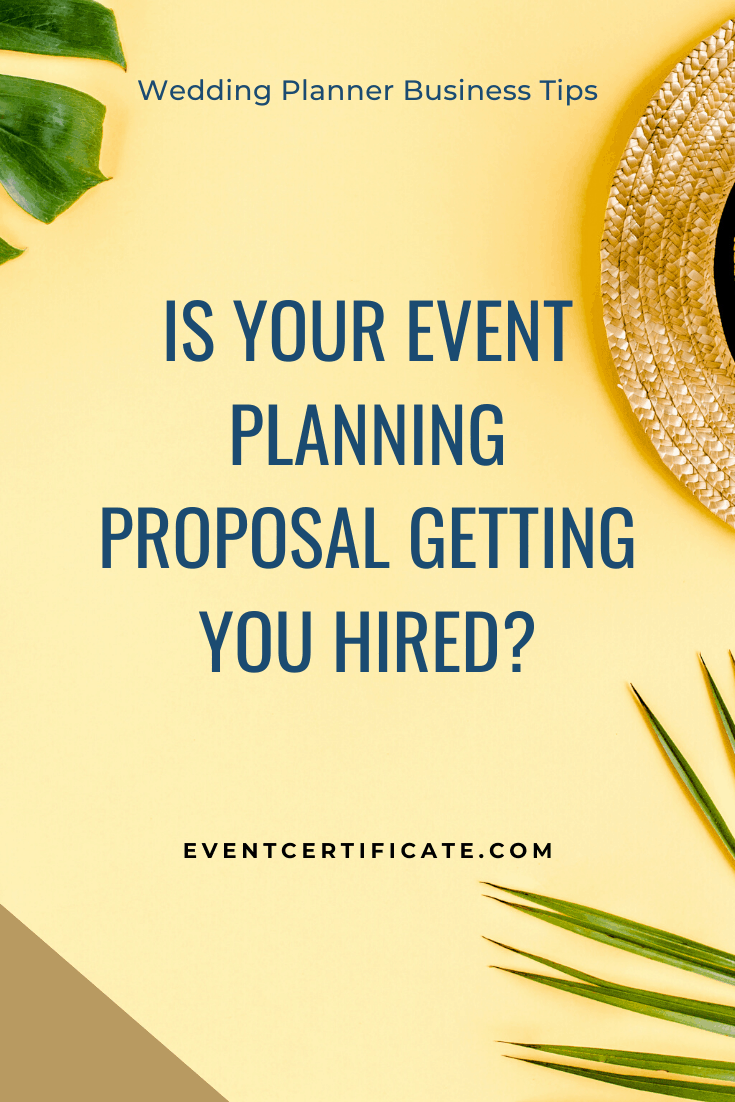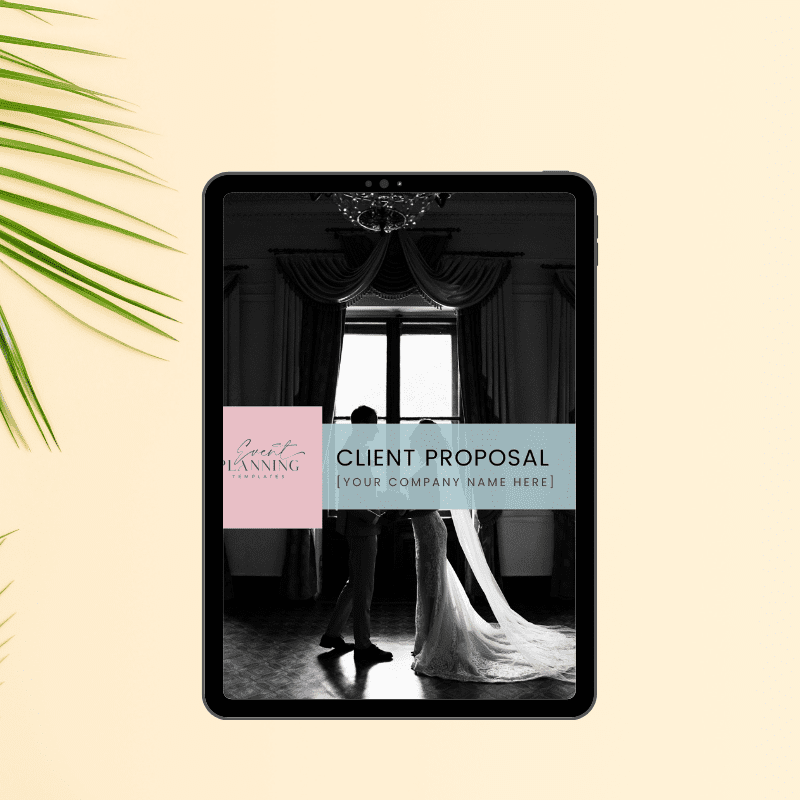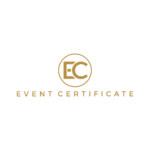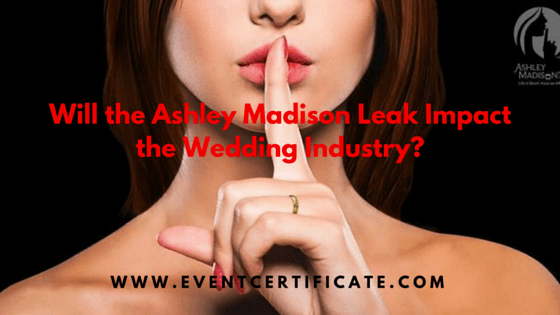It should go without saying that a well-written event planning proposal is key to impressing new clients. Crafting a winning event planning proposal is all about showcasing your skills, experience, and attention to detail. To help you succeed, we’re breaking down the 5 most important pieces of a successful event planning proposal. By following these 5 Ps, you’ll be well on your way to winning over clients time and time again.

Know your Audience
Before I dive into all the tips for creating the perfect proposal, let’s start with some basics. A proposal is a document you’ll send to potential clients looking to work with you. This should outline information about you, the business, your offers, and why/how a client can work with you.
To write an effective proposal, however, you do need to understand your audience. What is the client looking for? What questions are they looking to have answered? And most importantly, how can you ensure they see the value in what you’re offering?
Next you want to pay attention to the structure of your proposal. While I don’t recommend adhering to any strict structures, you do want to layout your proposal for conversion. That can follow a fairly standard format of an introduction, offers details, and then wrap-up.
Now let’s explore what exactly to include in your event planning proposal.
1. People
The introduction section of your event planning proposal is your opportunity to make a great first impression and showcase what makes you and your team stand out from the rest. Take the time to carefully craft a compelling introduction that highlights your strengths and expertise. If you are a solo planner, use this section to introduce yourself and your background, emphasizing what sets you apart from your competition.
To make your introduction effective, avoid the trap of focusing solely on basic facts about your business, such as how long you’ve been in business or how you got started in event planning. Instead, focus on the skills and experience that you bring to the table and how these skills will be beneficial to the client. This could include specific experience in planning events similar to the one the client is requesting, specialized training or certifications, or unique skills and expertise that make you uniquely qualified to deliver the event of their dreams.
By emphasizing your strengths and experience in your introduction, you can build trust and credibility with potential clients. They will see that you have the knowledge and expertise to handle their event with confidence and ease. It’s important to remember that this section sets the tone for the rest of the proposal. If you can capture the client’s attention and convince them that you are the right planner for their event, you’re off to a great start.
Instead of:
“We’re ABC Event Planning & Design and we’ve been in business for 20 years. We fell in love with event planning….”
Do this:
“After 20 years serving event planning clients in Atlanta, one of the main things we’ve learned is that not everyone is looking for the same event. That’s why we work with clients to….”
See what I did there? I was still able to include information about my years of experience, but it was less focused on presenting facts, and more on showing the client how these facts are beneficial to them.
Download our 5-Star Rated Event Planning Proposal

2. Process
In order to craft a successful event planning proposal, it’s essential to not only showcase your strengths and expertise. You should also clearly outline your process for working with clients. Many business owners assume that their clients understand their process, but this is often not the case. Particularly for clients who have never planned an event before, it can be difficult to understand what the process entails. By providing a clear and concise overview of your process, you can both educate and impress potential clients.
The process section of your event planning proposal should detail the steps that you will take to ensure a successful event. This could include everything from initial consultations and venue scouting, to vendor selection and event coordination. By outlining the steps involved in your process, you can give potential clients a sense of what to expect when working with you and demonstrate your commitment to a seamless and stress-free event planning experience.
It’s important to remember that the process section should be tailored to the specific needs of the client and the event in question. Take the time to understand the client’s vision and priorities, and tailor your process to meet their unique needs. This will demonstrate your attention to detail and your commitment to creating a truly personalized experience.
Some key things to include are:
- The process for hiring you
- What happens once they book you
- How do you work with them through the event planning process
- Do you provide any guarantees?
- What are some questions your past clients have had about the process that you can address here?
- Once the event is over, what happens next?
- What happens if they have questions or changes?
While this is not the time to write a detailed 20-page list of tasks for your clients. It is the place to give them an overview of what to expect, so they can better understand the benefits of hiring you.
3. Packages
It’s important to remember that this is not the time to list every single service you offer – instead, you should focus on tailoring your package recommendations to the specific needs of the client and their event.
Chances are, if a client has requested a proposal from you, you’ve already had some initial conversation with them and have a sense of what they’re looking for. Use this information to personalize your package recommendations and highlight the options that are best suited to their needs.
In this section, it’s important to clearly outline the packages that you are recommending and explain why you believe they are the right choice. What specific services or features are included in each package, and how will they benefit the client and their event? By providing this level of detail, you can help the client make an informed decision and demonstrate your expertise and attention to detail.
Remember, your goal is to make the client feel confident in their choice to work with you as their event planner. By tailoring your package recommendations and clearly outlining the benefits of each, you can build trust and show the client that you are the right choice for their event planning needs.
Download our 5-Star Rated Event Planning Proposal

4. Pricing
The fourth P of your event planning proposal is all about pricing. As an event or wedding planner, it’s important to recognize that your clients often come to you with a budget in mind. By including your pricing information in your proposal, you can help them make an informed decision about whether your services are the right fit for their needs.
It’s worth noting that while pricing is certainly important, it shouldn’t be the main focus of your proposal. Instead, you should be selling your clients on the benefits and value of your services before diving into the details of cost. By showcasing your expertise and outlining how you can help make their event a success, you can build trust and excitement with potential clients before discussing pricing.
Also Check Out: How to Price your Event Planning Services
When it comes to pricing, transparency is key. You should never be vague or try to hide your prices from clients. Instead, be upfront and honest about the costs associated with your services. This will help clients better understand the value of what you offer and make an informed decision about whether your pricing fits within their budget.
If a client is uncomfortable with your pricing, don’t panic! This is an opportunity to have an open and honest conversation about their needs and how you can work together to create a package that fits within their financial comfort zone. By being flexible and responsive to their concerns, you can build trust and rapport with potential clients and ultimately convert them into happy customers.
5. Policies
The fifth and final P in your event planning proposal is all about your Policies. While some event planners may overlook this crucial section, it’s important to provide clients with all the necessary information to make an informed decision.
Here’s where you can outline your business policies for clients. This includes details such as the expiration date of the proposal, whether you will hold their event date until they make a decision, the deadline for responding to the proposal, payment policies, deposit requirements, and cancellation policies.
By including these policies in your proposal, you are demonstrating your professionalism and transparency with clients. This can also help to answer any questions they may have, and ultimately, help them to feel more comfortable and confident in their decision to hire you as their event planner.
Keep in mind that not every client will come back to you with questions or concerns, especially if they are considering multiple event planners. By providing clear and detailed policies, you can give clients the information they need to make an informed decision and ultimately win them over.

Event Planning Proposal Template
If you feel stuck creating the perfect event planning proposal, be sure to also check out this template. It outlines all the areas needed to create a winning event planning proposal. You just need to fill in the information and your branding.
Conclusion: Event Planning Proposal
In conclusion, a winning event planning proposal is crucial in convincing potential clients to choose your services. The five key elements to include in your proposal are people, processes, packages, pricing, and policies. By focusing on your skills and experience, educating clients on the planning process, personalizing your package recommendations, being transparent about your pricing, and outlining your business policies, you can present yourself as a professional and trustworthy planner. Remember to always keep your client’s needs in mind and provide them with all the necessary information to make an informed decision. With these tips in mind, you can create a winning event planning proposal and increase your chances of winning over clients time and time again.
And if you have questions about creating a proposal, do not hesitate to reach out.


